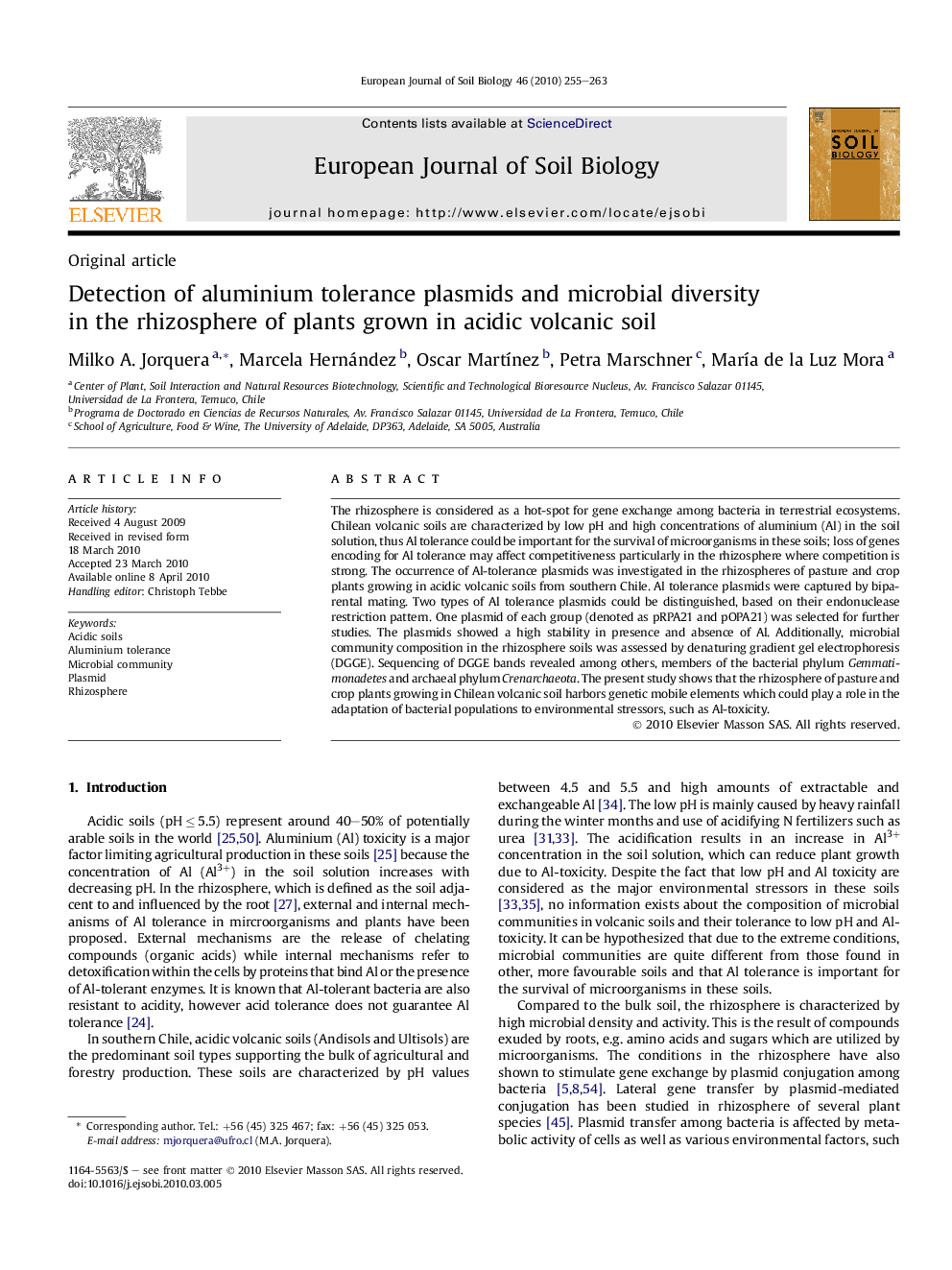| Article ID | Journal | Published Year | Pages | File Type |
|---|---|---|---|---|
| 4392128 | European Journal of Soil Biology | 2010 | 9 Pages |
The rhizosphere is considered as a hot-spot for gene exchange among bacteria in terrestrial ecosystems. Chilean volcanic soils are characterized by low pH and high concentrations of aluminium (Al) in the soil solution, thus Al tolerance could be important for the survival of microorganisms in these soils; loss of genes encoding for Al tolerance may affect competitiveness particularly in the rhizosphere where competition is strong. The occurrence of Al-tolerance plasmids was investigated in the rhizospheres of pasture and crop plants growing in acidic volcanic soils from southern Chile. Al tolerance plasmids were captured by biparental mating. Two types of Al tolerance plasmids could be distinguished, based on their endonuclease restriction pattern. One plasmid of each group (denoted as pRPA21 and pOPA21) was selected for further studies. The plasmids showed a high stability in presence and absence of Al. Additionally, microbial community composition in the rhizosphere soils was assessed by denaturing gradient gel electrophoresis (DGGE). Sequencing of DGGE bands revealed among others, members of the bacterial phylum Gemmatimonadetes and archaeal phylum Crenarchaeota. The present study shows that the rhizosphere of pasture and crop plants growing in Chilean volcanic soil harbors genetic mobile elements which could play a role in the adaptation of bacterial populations to environmental stressors, such as Al-toxicity.
